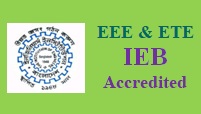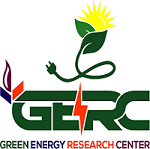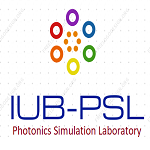Programs › Undergraduate › B.Sc. in EEE
B.Sc. in Electrical & Electronic Engineering
Course Duration
The is an open credit program and is designed for four years, but the course duration may vary depending on how many prerequisite
courses a student has to undertake. Each year consists of three regular semesters: Spring, Summer & Autumn.
Upon admission, a faculty adviser is assigned for each student for guidance and direction in meeting degree requirements and academic goals
Degree Requirements
The requirements listed below are a minimum requirement for a Bachelor degree set by IUB.
Students are advised to consider their specific requirements.
For the B.Sc. in EEE degree program, the student must undertake a minimum of 140 credits.
| Fee Structure | |
| Total credit | 140 |
| Application fee | Tk. 1000 |
| Admission fee (one time) | Tk. 25,000 |
| Student Activities fees including lab: (per semester) | Tk. 7,000 |
| Tuition per credit | Tk. 6,000 |
| Total (140 Credits) | |
| University Foundation Courses (41 Credits) | |
| Communication Skills (9 Credits) | |
| ENG101 | Listening and Speaking Skills |
| ENG102 | English Reading Skills |
| ENG105 | Business English |
| ENG106 | Advanced English Skills |
| ENG201 | Introduction to English Literature |
| *Prerequisite ENG 101 & 102
*Note: students not exempted from ENG101 and ENG102 will have to take ENG 101, ENG 102 and ENG 105 *Note: students exempted from ENG101 and ENG102 will have to take ENG105, ENG 106, ENG201 |
|
| Social Sciences (any two) 6 Credits | |
| ANT101 | Introduction to Anthropology |
| SOC101 | Introductory Sociology |
| HEA101 | Health and Society |
| ECN200 | Introduction to Economics |
| CMN201 | Introduction to Communication |
| SOC202 | Social Psychology |
| Humanities (any two) 6 Credits | |
| *BDS109 | Bangladesh 1971 through the Lenses |
| *NCH101 | National Culture and Heritage-I |
| *BPH101 | Bangladesh Political History |
| *BLA101 | Bangla Literature & Art |
| GSG101 | Global Studies |
| CHI101 | Elementary Chinese I |
| BNG201 | Bangla Literatures |
| HST103 | History and Civilization |
| AAT101 | Art and Aesthetics |
| MUS101 | Music Appreciation |
| FRN101 | Elementary French |
| PHL101 | Introduction to Philosophy |
| PHL206 | Philosophy of Religion |
| *Any one of the first four is mandatory | |
| Natural Sciences (7 Credits) | |
| PHY111 | Physics - I |
| PHY121 | Physics - II |
| PHY121L | Physics Lab |
| Computer Skills (4 Credits) | |
| CSC121 | Introduction to Computer Programming |
| CSC121L | Introduction to Computer Programming Lab |
| Live-In-Field Experience (3 Credits) | |
| LFE201 | Live-in-Field Experience |
| Numeracy (6 Credits) | |
| MAT111 | Mathematics - I |
| MAT121 | Probability & Statistics for Science & Engineering |
| EEE Major Courses (84 Credits) | |
| Mathematics (9 Credits) | |
| MAT131 | Mathematics - II |
| MAT213 | Mathematics - III |
| MAT221 | Mathematics - IV |
| EEE Core Courses (69 Credits) | |
| EEE131 | Electrical Circuit - I |
| EEE132 | Introduction to Materials and Chemistry |
| EEE211 | Electrical Circuit - II |
| EEE211L | Electrical Circuit Lab |
| EEE221 | Electronics - I |
| EEE223 | Mechanical Engineering Fundamentals |
| EEE231 | Signals and Systems |
| EEE232 | Digital Logic Design |
| EEE232L | Digital Logic Design Lab |
| EEE233 | Energy Conversion - I |
| EEE233L | Energy Conversion - I Lab |
| EEE234 | Electronics - II |
| EEE234L | Electronics Lab |
| EEE236 | Object Oriented Programming and Data Structure |
| EEE311 | Communication Engineering - I |
| EEE311L | Communication Engineering Lab |
| EEE313 | Electromagnetic Fields and Waves |
| EEE316L | Engineering Drawing and Electrical Services Design Lab |
| EEE317L | Operating System Lab |
| EEE325 | Microprocessor and Embedded Systems |
| EEE326L | Sensors and IoT Lab |
| EEE331 | Computer Networks |
| EEE331L | Computer Networks Lab |
| EEE332 | Power Electronics and Drives |
| EEE332L | Power Electronics and Drives Lab |
| EEE333 | Power System - I |
| EEE333L | Power System - I Lab |
| EEE335 | Control Systems |
| EEE335L | Control Systems Lab |
| EEE415L | Artificial Intelligence and Machine Learning Lab |
| EEE427 | Semiconductor Devices and Integrated Circuits |
| EEE422 | Ethics, Engineering Economics and Project Management |
| EEE424 | Seminar on Leadership and Entrepreneurship for Engineers |
| Capstone Design Project and Internship (6 credits) | |
| EEE400A | Final Year Design Project Part A |
| EEE400B | Final Year Design Project Part B |
| EEE496 | Industry Attachment |
| EEE Elective Courses (15 Credits) Prerequisite: Earned Minimum 100 Credits |
|
| Group A: Power and Renewable Energy | |
| EEE439 | Power System - II |
| EEE448 | Energy Conversion - II |
| EEE432 | Power Plant Engineering |
| EEE334 | High Voltage Engineering |
| EEE436 | Switchgear and Protection |
| EEE437 | Smart Power Grid |
| EEE438 | Renewable Energy Technology |
| Group B: Telecommunications and Cyber Security | |
| EEE441 | Communication Engineering - II |
| EEE442 | Optical Fiber Communications |
| EEE443 | RF and Microwave Engineering |
| EEE444 | Wireless Communications |
| EEE449 | Telecommunication Networks and Switching Systems |
| EEE446 | Antenna and Wave Propagation |
| EEE447 | Satellite Communications |
| EEE456 | Cyber Security and Privacy |
| EEE457 | Internet of Things Technology |
| Group C: AI and Robotics | |
| EEE451 | Robotics and Mechatronics |
| EEE452 | Computer Vision |
| EEE452 | Data Science and Big Data Analysis |
| EEE454 | Machine Learning and Deep Learning |
| EEE455 | Block Chain and Cryptocurrency |
| Group D: Microelectronics and Nanotechnology | |
| EEE458 | Digital Signal Processing |
| EEE460 | Sensor and Instrumentation |
| EEE461 | Biomedical Instrumentation |
| EEE462 | Electrical Properties of Materials |
| EEE464 | Nanotechnology |
| EEE465 | Biomedical Signal Processing |
| EEE479 | VLSI Tecnology and Design |
| EEE480 | Optoelectronics and Photonics |
| Group E: Computer and Software Engineering | |
| EEE472 | Data Structure and Algorithm |
| EEE481 | Software Engineering Concepts |
| EEE474 | Software Project Management |
| EEE482 | Software Testing and Reliability |
| EEE476 | Digital Image Processing |
| EEE477 | Numerical Methods |
| EEE478 | Information System Analysis and Design |
| Common Elective Course for Any Group: EEE490 – Special Topics in ETE (Cr. 3) | |
| Minor for EEE Students: (15 Cr.) | |
| Students majoring in Electrical and Electronic Engineering may choose a minor as any one of the five elective groups by taking at least 15 credits from elective courses. From these 15 credits, students must take at least 9 credits from one group (minor track) and 6 credits from other group(s). They may also choose a minor by taking these 15 credits offered by another department or school. | |
Degree Programs offered by the EEE department
B.Sc. in Electrical & Electronic Engineering
B.Sc. in Electronic & Telecommunication Engineering
M.Sc. in Electrical & Electronic Engineering
M.Eng. in Electrical & Electronic Engineering
M.Sc. in Telecommunication Engineering
M.Sc. in Computer Networks & Communications
For further information please contact
Department of Electrical & Electronic Engineering
School of Engineering, Technology & Sciences
Independent University, Bangladesh
Room 5001, Academic Block, Level 5,
Plot-16, Block-B, Bashundhara, Dhaka-1229
Tel: +880-2-8401645-52, +880-2-8402065-76, Ext-2215
www.eee.iub.edu.bd






 IEEE IUB SB Facebook
IEEE IUB SB Facebook
